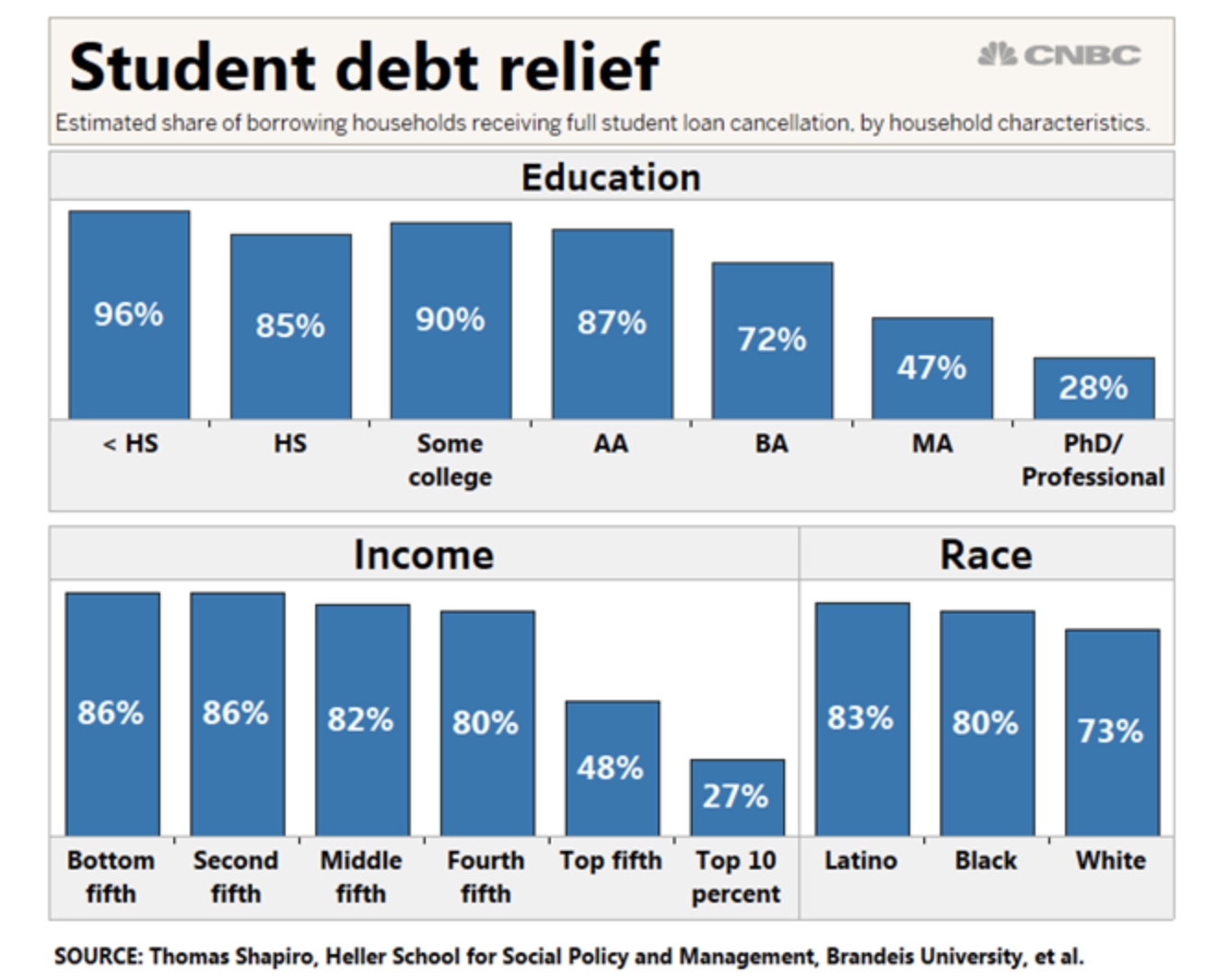At a time when Americans collectively hold an impossible $1.5 trillion in student loan debt, Democratic Senator Elizabeth Warren’s Monday proposal for free public university education and mass student loan forgiveness must certainly fall on eager ears. The fact of the matter is that Americans are struggling to repay their student debt more than ever before--and it’s a problem that threatens to bury the country by breeding undereducated masses.
According to the St. Louis Federal Reserve, around 45 million borrowers collectively owe over $1.5 trillion in student loans. And while student debt levels have set a new record, almost everyone is aware that changes are needed, but can't find a common language to move forward.
Senator Warren--a White House hopeful for 2020--has a very ambitious solution: She’s proposing that we entirely reshape higher education by canceling most student loan debt and eliminating tuition at every public college.
To accomplish this ambitious plan, Warren proposes tapping into an “ultra-millionaire tax”, which is an annual 2 percent tax on families with $50 million or more in wealth.
Increasing taxes for America’s wealthiest families and corporations would secure around $2.75 trillion over 10 years, according to estimates by economists Emmanuel Saez and Gabriel Zucman from the University of California Berkeley, who were involved in drafting Warren's proposal.
“We got into this crisis because state governments and the federal government decided that instead of treating higher education like our public school system?—?free and accessible to all Americans?—?they’d rather cut taxes for billionaires and giant corporations and offload the cost of higher education onto students and their families. The student debt crisis is the direct result of this failed experiment,” said Warren.
Warren’s plan would cancel student debt up to $50,000 for borrowers who make less than $100,000 a year. That would mean debt forgiveness for more than 42 million people, or 95 percent of those with debt.
Related: How Millennials Are Reshaping Real Estate
For every $3 a borrower earns yearly over that $100,000, the amount of debt forgiven would decline by $1. Those who earn more than $250,000 a year would not be eligible for any debt cancellation, and the cancellation for borrowers who do receive it would not be treated as taxable income.

(Click to enlarge)
Source: CNBC
And it wouldn’t be only students benefiting, either. The entire working class would benefit, which has always been the American dream. Work hard, get rewarded. The middle class, too, would feel less of a squeeze, which is now coming from many fronts, including healthcare costs that drive many to bankruptcy.
“For decades, we’ve allowed the wealthy to pay less while burying tens of millions of working Americans in education debt. It’s time to make different choices,” wrote Warren in Medium post.
The opposition, of course, is fierce, and critics have said, varyingly, that it would cost too much, even though approximately 75,000 wealthy American households would presumably be footing the bill.
Related: Is America's Love For Cars Fizzling?
They have also questioned the fairness to students who have already paid off their student loans without government assistance. That argument, however, should fall on deaf ears in the realm of logic. When a government institutes a new tax break for a certain group is it criticized for not being retroactive? Do we never embark on reforms because they would not be fair to people who were acting on things prior to those reforms? Enough said.
So far, no one has really come up with a legitimate argument against Warren’s plan, including those who say it may lead to more aggressive tax avoidance.
The most honest argument against it, for now, is quite simple: America’s wealthiest won’t like it, and a group of them are already struggling to get their kids into college by scandalously bribing people to boost their test scores or get them in on false sports fame.
With that scandal refusing to die in the media, Warren’s proposal is likely very well-timed.
By Josh Owens for Safehaven.com
More Top Reads From Safehaven.com
















